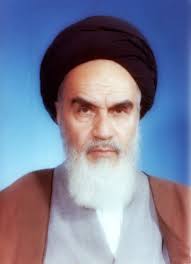
Introduction
The Iranian president plays a crucial role in shaping not only the domestic policies of Iran but also its international relations. As one of the most powerful figures in the country, the president’s actions and decisions have significant implications for global politics, especially given Iran’s strategic position in the Middle East. Understanding the current landscape of Iranian leadership under President Ebrahim Raisi provides insights into ongoing geopolitical tensions and alliances.
Current Events and Presidential Leadership
Since taking office in August 2021, President Ebrahim Raisi has faced various challenges, including economic sanctions, a struggling economy, and the need to address widespread protests related to government policies and social issues. Raisi, known for his conservative stance and close ties to the Supreme Leader, has prioritized a shift in Iran’s foreign policy, focusing on enhancing relations with neighboring countries while attempting to revitalize talks surrounding the Joint Comprehensive Plan of Action (JCPOA).
In recent months, Raisi’s administration has engaged in negotiations to restore the nuclear deal, which is essential for easing sanctions and reviving Iran’s economy. The ongoing dialogues with European and Asian powers have sparked mixed reactions domestically and internationally, with many watching closely to see if Raisi can navigate the complexities of these talks amidst a backdrop of regional conflicts and the evolving geopolitical climate.
Domestic Challenges and Public Response
Domestically, President Raisi’s government has faced increasing dissent. Public protests have erupted over issues such as economic hardship, civil liberties, and the government’s handling of social policies. The government’s response to these protests has raised concerns regarding human rights and freedom of expression in Iran. Observers note that how Raisi addresses these internal pressures will be pivotal for his administration’s stability and legitimacy.
Conclusion
The trajectory of President Raisi’s leadership will significantly impact Iran’s future, affecting both the nation’s internal dynamics and its role on the global stage. As international negotiations progress and domestic challenges intensify, the implications for regional peace, security, and the global economy remain uncertain. The upcoming months are critical; how Raisi balances domestic discontent while pursuing a renegotiation of international agreements will be reflective of his presidency and Iran’s future relations with the rest of the world.



